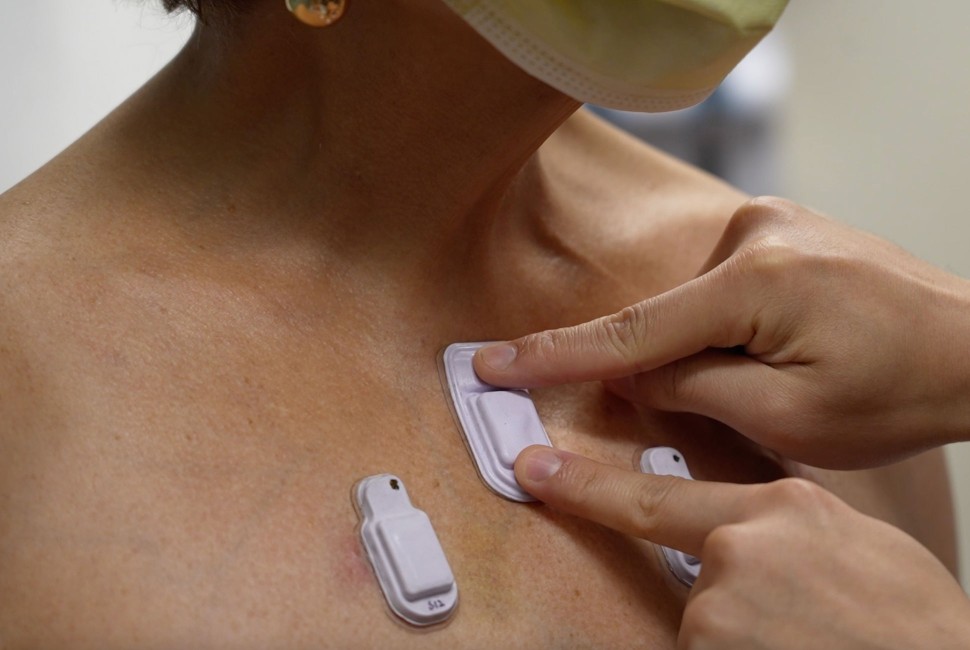During even the most routine visits, physicians listen to sounds inside their patients’ bodies — air moving in and out of the lungs, heart beats and even digested food progressing through the long gastrointestinal tract. These sounds provide valuable information about a person’s health. And when these sounds subtly change or downright stop, it can signal a serious problem that warrants time-sensitive intervention.
Now, Northwestern University researchers are introducing new soft, miniaturized wearable devices that go well beyond episodic measurements obtained during occasional doctor exams. Softly adhered to the skin, the devices continuously track these subtle sounds simultaneously and wirelessly at multiple locations across nearly any region of the body.
The new study was published today (Nov. 16) in the journal Nature Medicine.
In pilot studies, researchers tested the devices on 15 premature babies with respiratory and intestinal motility disorders and 55 adults, including 20 with chronic lung diseases. Not only did the devices perform with clinical-grade accuracy, they also offered new functionalities that have not been developed nor introduced into research or clinical care.

